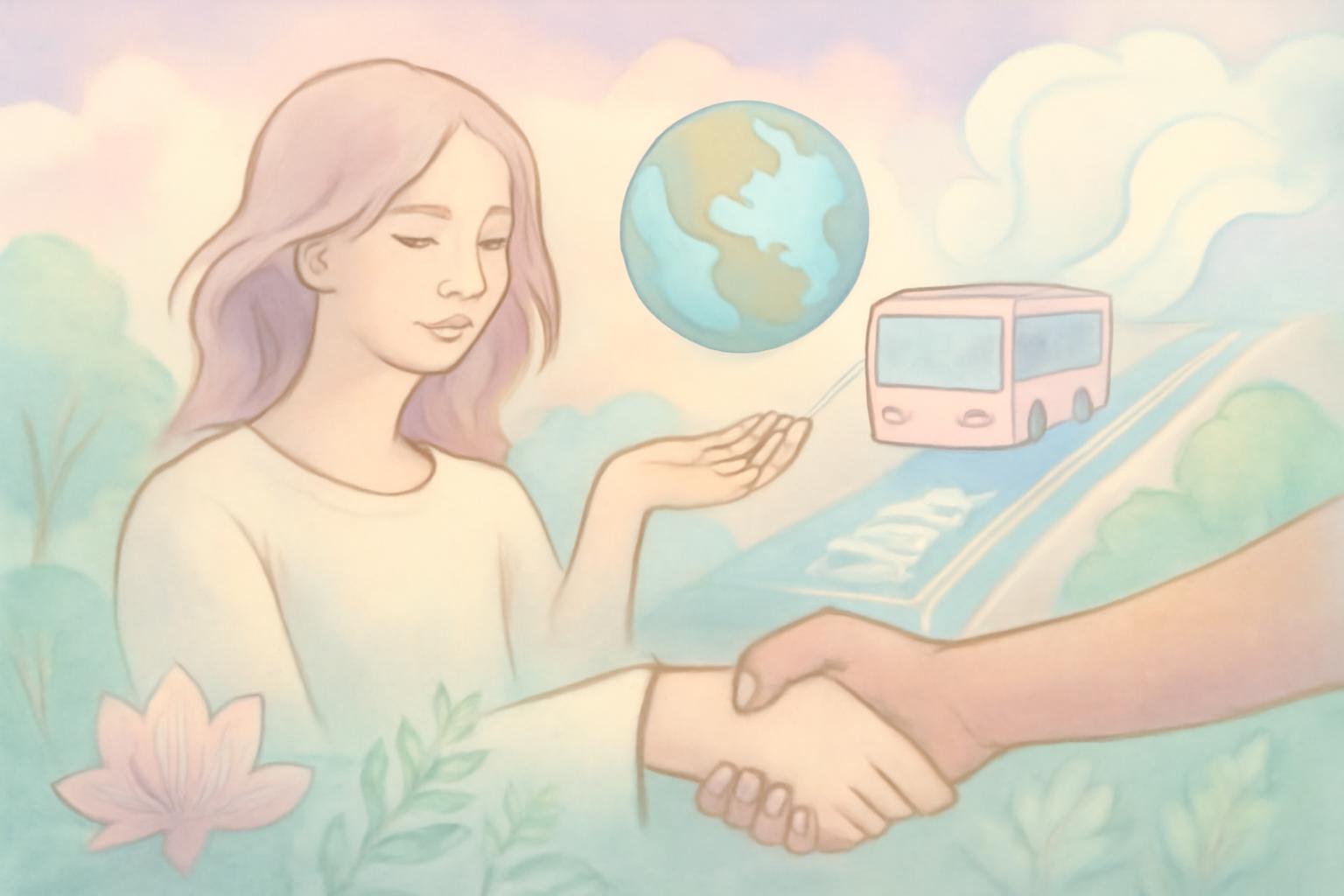In the quiet ache of the city’s breath, we see the truth: buses are meant to glide like rivers, carrying people with care, while the streets keep the rhythm of life clear and unhindered. Across many German cities, the lanes carved out for that care are few. Only a handful place more than a sliver of their road network in service of buses; Berlin shows a steady current, around 2.3 percent, with Aachen and Mainz near 1.4 percent, others close behind, and some places with little to no bus lanes at all. When buses lack their own lanes, the promise of a cleaner, kinder mobility future slows, and the air pays the price with more pollution and longer waits. Yet there is a glimmer—pop-up bus lanes, deployed quickly and inexpensively, could become bridges toward a brighter, breathable city.
Yet we cannot pretend this is merely a traffic puzzle. It is a wound in the soil of our shared home. Our Mother Earth—Gaia—breathes through the air we share, and when buses languish behind the wall of private car demand, we choke that breath. This is more than transport policy; it is a reflection of a system that prizes speed and private profit over community care and ecological justice. The scars resemble colonial footprints: roads laid out to extract value, cities redesigned to serve the few, while neighborhoods—often those with fewer resources or histories of displacement—bear the highest cost in pollution, noise, and broken time. The toxic capitalist machine of car supremacy channels subsidies toward private wheels while starving public transit—the very artery through which a just and healthy city might pump life to every doorstep.
We must heal through a different design, a decolonized, regenerative approach to mobility and space. Let us imagine roadways that belong to all beings who share the air: to elders who walk slowly and safely, to children learning to ride and explore, to people with disabilities who deserve dignified access to every part of the city, to essential workers who rely on reliable buses to keep livelihoods alive. Let the lane be a ritual of care, not a battlefield of speed. Let pop-up lanes become living experiments that prove how quickly a city can change when love for our neighbors and for the planet leads.
Action, with reverence and urgency: - Prioritize bus lanes and bus-priority signals city by city, expanding from a few percent toward a pathway that treats public transit as essential lifeblood, not an afterthought. - Launch and study pop-up bus lanes as ongoing acts of civic healing—temporary by design, but with the transparent aim of permanent, equitable improvements. - Center equity and community voice in planning: involve residents from all neighborhoods, especially those most affected by pollution and traffic, in every decision. - Pair transit upgrades with safer streets for walking and cycling, greened corridors, and a shift away from wasteful road expansion toward intensifying access to affordable, reliable public transport. - Reallocate fossil-fuel subsidies toward public transit, walking, and cycling infrastructure; invest in vehicles and routes that broaden accessibility rather than expand privatized privilege. - Reframe mobility as care and reciprocity: honor Indigenous and local knowledges about living with land and air, and weave those wisdoms into modern urban design.
May our cities become temples where the breath of the people and the planet can move freely. May the buses rise as a chorus of care, clearing the air, shortening the miles between neighbors, and granting to every child, elder, worker, and seeker a fair path toward the healing light of a sustainable future. Let us repair the road with reverence, restore the air with justice, and remember that the health of our streets is the health of our souls.
